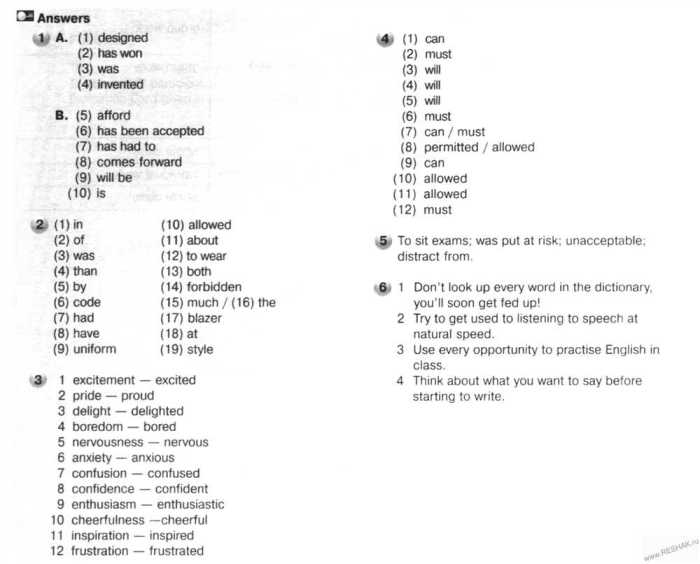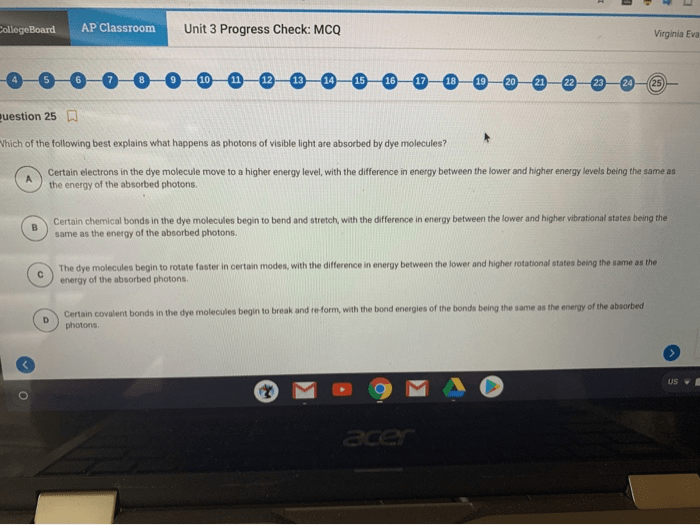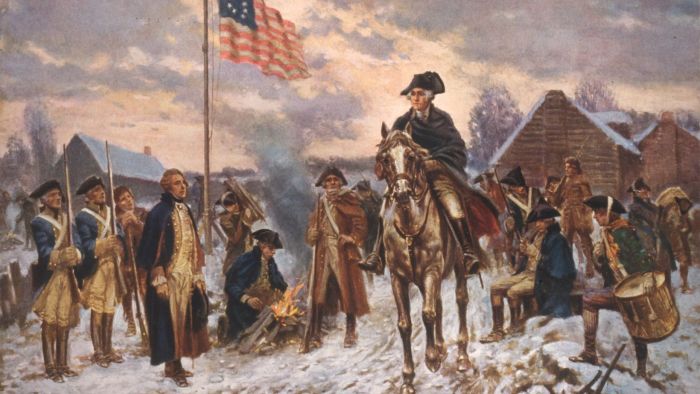Unit 7 progress check mcq apush – Unit 7 APUSH Progress Check MCQ: A Comprehensive Guide to Key Concepts and Events embarks on an illuminating journey through the complexities of American history. This multifaceted resource delves into the core concepts and pivotal moments that shaped the nation’s identity, providing a comprehensive understanding for students preparing for the APUSH Progress Check.
As we navigate through the chapters, we will encounter primary and secondary source documents, unraveling their historical significance and biases. We will engage in critical analysis of diverse historical interpretations, weighing their strengths and limitations. By exploring essential questions and examining supporting evidence, we will foster a deeper understanding of the complexities that have shaped the American narrative.
Unit 7 APUSH Progress Check MCQ: Unit 7 Progress Check Mcq Apush
The Unit 7 APUSH Progress Check MCQ covers topics related to the American Revolution and the founding of the United States.
The multiple-choice questions assess students’ understanding of key events, figures, and concepts from this period in American history.
Multiple-Choice Questions
- Which of the following was a major cause of the American Revolution?
- British mercantilism
- French and Indian War
- Enlightenment ideas
- All of the above
Correct Answer:All of the above
Explanation:British mercantilism, the French and Indian War, and Enlightenment ideas all played a role in causing the American Revolution.
- Who was the primary author of the Declaration of Independence?
- Thomas Jefferson
- John Adams
- Benjamin Franklin
- George Washington
Correct Answer:Thomas Jefferson
Explanation:Thomas Jefferson was the primary author of the Declaration of Independence, which he drafted in 1776.
- Which battle is considered the turning point of the American Revolution?
- Battle of Saratoga
- Battle of Yorktown
- Battle of Trenton
- Battle of Bunker Hill
Correct Answer:Battle of Saratoga
Explanation:The Battle of Saratoga was a major victory for the Americans and convinced France to enter the war on their side.
- What was the main purpose of the Articles of Confederation?
- To create a strong central government
- To establish a loose alliance of states
- To declare independence from Great Britain
- To ratify the Constitution
Correct Answer:To establish a loose alliance of states
Explanation:The Articles of Confederation established a weak central government and left most powers to the states.
- Which of the following was a major weakness of the Articles of Confederation?
- Lack of a national currency
- Inability to regulate commerce
- Lack of a strong executive branch
- All of the above
Correct Answer:All of the above
Explanation:The Articles of Confederation had many weaknesses, including a lack of a national currency, inability to regulate commerce, and lack of a strong executive branch.
Key Concepts and Events

Unit 7 of the APUSH curriculum covers the period from 1890 to 1920, a time of significant social, economic, and political change in the United States.
Key concepts and events include:
Industrialization and Urbanization
- The rapid growth of factories and cities led to the emergence of a new industrial economy and a large urban working class.
- The rise of big business and the concentration of wealth in the hands of a few powerful individuals.
- The impact of industrialization and urbanization on the environment, including pollution and the depletion of natural resources.
Immigration and Nativism
- The arrival of millions of immigrants from Europe and Asia, who sought economic opportunities in the United States.
- The rise of anti-immigrant sentiment and the emergence of nativist groups, such as the Ku Klux Klan.
- The impact of immigration on American culture and society, including the development of new ethnic neighborhoods and the spread of new ideas.
Progressivism
- A reform movement that sought to address the problems of industrialization and urbanization.
- The efforts of progressives to regulate big business, protect the environment, and improve the lives of the working class.
- The impact of progressivism on American politics and society, including the passage of new laws and the expansion of government power.
World War I
- The causes and consequences of America’s entry into World War I.
- The impact of the war on the American economy and society.
- The role of the United States in the war and the postwar peace settlement.
Historical Documents

Historical documents are invaluable sources of information for historians. They provide a firsthand account of events and offer insights into the thoughts and beliefs of people in the past. In Unit 7, students will analyze a variety of primary and secondary source documents related to the American Revolution.
Primary source documents are firsthand accounts of an event or period. They can include letters, diaries, speeches, newspapers, and government records. Secondary source documents are created after the fact and interpret or analyze primary source documents. They can include textbooks, scholarly articles, and documentaries.
Context, Purpose, and Biases
When analyzing historical documents, it is important to consider the context in which they were created, the purpose for which they were created, and the biases of the author.
The context of a document includes the time and place in which it was created, as well as the social, political, and economic conditions that existed at the time. The purpose of a document can be to inform, persuade, or entertain.
The biases of the author can be based on their personal beliefs, experiences, or interests.
By understanding the context, purpose, and biases of a document, historians can better understand the meaning of the document and its significance.
Historical Interpretations

Historians have offered various interpretations of the events in Unit 7, each with its own strengths and weaknesses.
One interpretation emphasizes the role of economic factors in shaping the course of events. This interpretation argues that the desire for economic gain motivated many of the key actors in the period, from the European explorers and colonizers to the American colonists.
Strengths of Economic Interpretation
- Provides a clear and concise explanation for many of the events of the period.
- Highlights the importance of economic factors in shaping historical outcomes.
- Supported by a wealth of documentary evidence.
Weaknesses of Economic Interpretation
- Oversimplifies the complex motivations of historical actors.
- Fails to account for the role of other factors, such as political and cultural factors.
- Can lead to a deterministic view of history, in which economic forces are seen as the sole driving force of events.
Another interpretation emphasizes the role of political factors in shaping the course of events. This interpretation argues that the desire for political power and control motivated many of the key actors in the period, from the European monarchs to the American revolutionaries.
Strengths of Political Interpretation
- Provides a clear and concise explanation for many of the events of the period.
- Highlights the importance of political factors in shaping historical outcomes.
- Supported by a wealth of documentary evidence.
Weaknesses of Political Interpretation
- Oversimplifies the complex motivations of historical actors.
- Fails to account for the role of other factors, such as economic and cultural factors.
- Can lead to a deterministic view of history, in which political forces are seen as the sole driving force of events.
A third interpretation emphasizes the role of cultural factors in shaping the course of events. This interpretation argues that the values, beliefs, and ideas of the people living in the period played a major role in shaping the events that unfolded.
Strengths of Cultural Interpretation
- Provides a rich and nuanced understanding of the events of the period.
- Highlights the importance of cultural factors in shaping historical outcomes.
- Supported by a growing body of scholarship.
Weaknesses of Cultural Interpretation
- Can be difficult to document and analyze cultural factors.
- May overemphasize the role of culture at the expense of other factors.
- Can lead to a relativistic view of history, in which all cultures are seen as equally valid.
Each of these interpretations has its own strengths and weaknesses. The best way to understand the events of Unit 7 is to consider all of these interpretations and to weigh their relative strengths and weaknesses.
Essential Questions

Unit 7 of APUSH explores pivotal moments in American history that shaped the nation’s identity and trajectory. The unit poses several essential questions that guide students’ inquiry into these historical events and their lasting implications.
The Causes and Consequences of the American Revolution, Unit 7 progress check mcq apush
- What were the underlying causes of the American Revolution, and how did they contribute to the outbreak of hostilities?
- How did the American Revolution impact the political, social, and economic fabric of the newly formed United States?
The Development of American Political Institutions and Ideals
- How did the Founding Fathers’ political philosophies and experiences influence the creation of the American Constitution?
- How have American political institutions evolved over time, and what factors have driven these changes?
The Expansion of the United States and Its Impact on Native Americans
- What were the motivations behind American westward expansion, and how did it affect the lives of Native Americans?
- How did the United States government’s policies toward Native Americans contribute to conflict and dispossession?
The Emergence of a National Economy and the Industrial Revolution
- How did the Industrial Revolution transform American society, and what were its social and economic consequences?
- What role did government play in fostering economic growth and shaping the nation’s economy?
The Crisis of Slavery and the Civil War
- How did the institution of slavery shape American society and politics, and what were the underlying causes of the Civil War?
- What were the major turning points of the Civil War, and how did it lead to the abolition of slavery?
Unit 7 Review

Unit 7 covers the period of American history from 1890 to 1920, a time of significant economic, social, and political change. Key themes include the rise of industrialization, urbanization, and immigration, as well as the emergence of the United States as a global power.
Key Terms
- Industrialization: The process of transforming an economy from one based on agriculture to one based on manufacturing.
- Urbanization: The process of people moving from rural areas to cities.
- Immigration: The process of people moving from one country to another.
- Imperialism: The policy of extending a nation’s authority by territorial acquisition or by the establishment of economic and political dominance over other nations.
- Progressive Era: A period of social and political reform in the United States from the 1890s to the 1920s.
Key Events
- The Spanish-American War (1898): A war between the United States and Spain that resulted in the United States gaining control of Puerto Rico, Guam, and the Philippines.
- The Panama Canal (1914): A canal built by the United States that connects the Atlantic and Pacific Oceans.
- The United States’ entry into World War I (1917): A major conflict that involved the United States and its allies fighting against Germany and its allies.
Key Concepts
- The impact of industrialization on American society: Industrialization led to the growth of cities, the rise of new social classes, and the development of new technologies.
- The impact of urbanization on American society: Urbanization led to overcrowding, pollution, and crime.
- The impact of immigration on American society: Immigration led to the growth of the American population, the diversification of American culture, and the rise of nativism.
- The role of the United States in world affairs: The United States emerged as a global power during this period, and its actions had a significant impact on world events.
FAQs
What is the significance of Unit 7 in the APUSH curriculum?
Unit 7 covers a pivotal period in American history, spanning from the American Revolution to the Civil War. It examines the ideological, political, and social forces that shaped the nation’s identity and set the stage for future conflicts.
How can I effectively prepare for the Unit 7 Progress Check MCQ?
Thorough preparation for the MCQ requires a comprehensive understanding of the key concepts and events covered in Unit 7. Utilize the provided resources, engage in active reading, and practice answering multiple-choice questions to enhance your readiness.